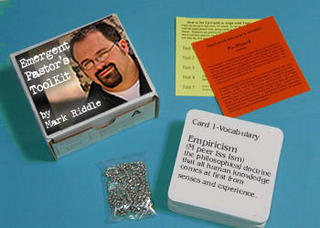Spiritual Formation:leaving behind Christian Education, discipleship and follow-up as we know it.Brian McLaren is wicked insightful.
"Meanwhile, in many holiness, charismatic, and Pentecostal circles, intense emotional experiences were valued in place of knowledge. The more experiences one acquires, the better off one will be: spiritual experiences = growth. In recent years, many individuals and churches have hybridized these two approaches, creating what is probably becoming the dominant formula in conservative Protestant settings: knowledge + spiritual experiences = growth.
However, some degree of disillusionment has set in with the knowledge and experience acquisition approaches, just as it did with institutional participation. A number of factors have contributed to this disillusionment, including boredom, pride over mastery of information (or experiences) without a corresponding transformation in character, a tendency to drift into esoteric or theoretical concerns far removed from real life, a focus on information that kept people from making satisfying interpersonal contact, superficiality, a sense that curricula and teaching methods were outdated, and a kind of consumer mentality where people were always shopping for the latest, greatest seminar, teaching series, or revival.
In their place, a more holistic concept of spiritual formation has begun to emerge – drawing both from Catholic and monastic sources and drawing from contemporary philosophy and educational theory as well. This approach questions the assumptions of institutional participation and knowledge or experience acquisition. Instead, it proceeds from a more nuanced understanding that
knowledge + experiences + relationships + practices + suffering +service + time = growth + health. "Link





